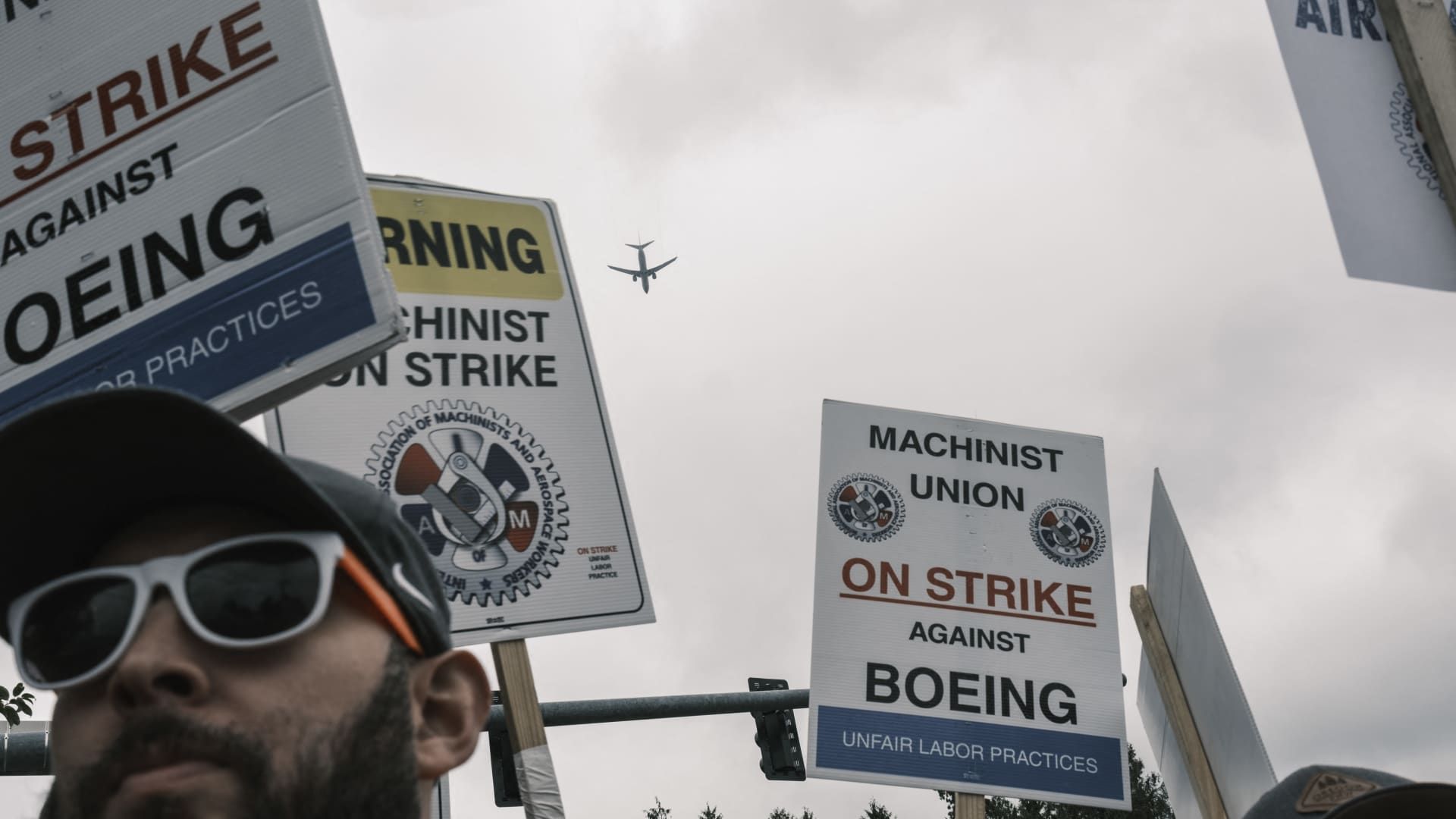Striking Boeing workers hold a rally at Boeing's Portland facility on September 19, 2024, in Portland, Oregon.
Jordan Gale | AFP | Getty Images
Boeing On Monday, the company sweetened its contract offer, saying it was its “best and final” proposal for its more than 30,000 machinists as its strike, which has halted most of the aerospace giant's aircraft production, entered its second week.
The new offer increased pay, reinstated annual bonuses and increased a bonus that would be awarded upon contract ratification, among other changes, Boeing said on its website.
The company's new offer would increase overall wages by 30 percent over four years, up from the 25 percent previously proposed. It also doubled the signing bonus to $6,000, reinstated an annual bonus for machinists and increased the company's 401(k) contribution.
The workers' union, the International Association of Machinists and Aerospace Workers, had no immediate comment on the offer. Boeing said the offer is subject to ratification by 11:59 p.m. PT Friday.
The new offer is Boeing's latest attempt to end a costly strike, the unionized workforce's first since 2008, as pressure mounts on new Chief Executive Kelly Ortberg to reach a deal.
Bank of America analyst Ron Epstein estimated the strike is costing Boeing $50 million a day, and rating agencies have said the company risks a rating downgrade the longer the strike continues.
In the early days of the strike, Boeing said it began temporarily furloughing nonunion workers, including managers, and implemented other cost cuts such as a hiring freeze, reduced travel and the elimination of first- and business-class airline tickets for employees.
Both Boeing and the union said they were disappointed with last week's negotiations.
The strike came after workers voted 94.6% against the previous proposal that had been backed by the union.
Last week, machinists on the picket line in Renton, Washington, told CNBC they rejected the first contract with a higher wage because they wanted their wages to keep up with the sharply rising cost of living in the Seattle area. Some workers said in interviews that they have prepared for a long strike and have begun taking on side jobs, such as delivering food or working in warehouses.









